MercoPress. South Atlantic News Agency
Agriculture
-
Sunday, December 1st 2024 - 23:40 UTC
China absorbs most of Argentina’s beef exports but at lower prices
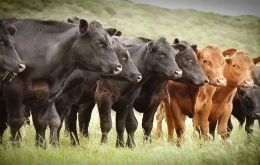
China figures as the main market for Argentine beef, having absorbed in nine months to October 78% of exports, based on data from the ABC Consortium, which represents the country’s largest beef exporters.
-
Tuesday, November 26th 2024 - 23:19 UTC
Meat supply resumed to French supermarket chain stores in Brazil after apology

French supermarket giant Carrefour apologized so that Brazilian meatpackers would end their boycott of the group and resume deliveries to stores nationwide, Agencia Brasil reported Tuesday. The measure had been adopted after the company's CEO Alexandre Bompard said last week that meat produced in the South American country did not meet European standards for which he was forced to recant.
-
Tuesday, November 26th 2024 - 21:51 UTC
Paraguay does not accept any harm to its production

Paraguayan President Santiago Peña pledged to “firmly” defend his country's meat in the face of recent statements by Carrefour CEO Alexandre Bompard, who refused to continue selling meat from Mercosur countries.
-
Thursday, November 21st 2024 - 19:38 UTC
French supermarket chain to halt sales of Mercosur meat to boycott FTA

Carrefour CEO Alexandre Bompard announced this week that his company would not be selling meat imported from the Southern Common Market (Mercosur) in a move to prevent the Free Trade Agreement (FTA) with the European Union from pulling through. France's largest supermarket planned on suspending meat imports from Argentina, Bolivia, Brazil, Paraguay, and Uruguay “in solidarity with the agricultural sector.”
-
Monday, November 18th 2024 - 10:55 UTC
With Milei, Macron insists France not signing EU-Mercosur FTA

French President Emmanuel Macron told his Argentine counterpart Javier Milei once again during their meeting Sunday at Casa Rosada that his country would not sign the European Union (EU)-Southern Common Market (Mercosur) Free Trade Agreement (FTA) “as is.”
-
Monday, November 18th 2024 - 08:30 UTC
La Niña threatens this year's soybean crop in Paraguay
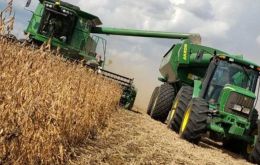
Paraguayan soybean producers warned this weekend that the La Niña weather phenomenon may affect this year's crop while the 2023/24 harvest is expected to reach a record in tons produced and exported, it was reported in Asunción.
-
Saturday, November 16th 2024 - 10:47 UTC
Falklands’ avian flu, Government support for those emotionally affected by the situation
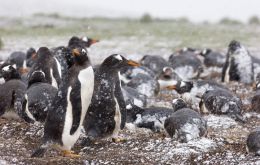
As we continue to monitor the situation regarding the rise of bird flu in the Falkland Islands, we understand that this may be a challenging time for some members of our community. The wellbeing of our community is a priority, and we want to remind everyone that support is available to help you navigate any concerns or emotional challenges you may be facing.
-
Wednesday, November 13th 2024 - 20:14 UTC
Uruguay quality beef complies with EU demands on deforestation, sustainability and traceability
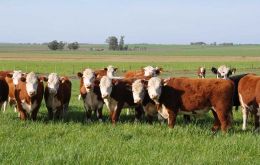
The protein consumption of Uruguayans has averaged some 95 kilos per person, a few more kilos than back in 1918, when after reaching a peak of 87, had begun to fall. Of the total 95 kilos, 46 have been beef, with the rest chicken and pork, according to Conrado Ferber, head of the Uruguay National Meats Institute, INAC.
-
Tuesday, November 12th 2024 - 06:38 UTC
Food insecurity feared in Bolivia after weeks-long road blockades

Bolivia's Association of Oilseed and Wheat Producers (Anapo) President Fernando Romero said Monday that diesel fuel shortages seriously threatened food supply in the short run as well as production in the future. Romero told the Chinese news service Xinhua that hundreds of companies in eastern Bolivia were on the brink of bankruptcy and pointed out that only 20% of rice growers had started planting.
-
Sunday, November 10th 2024 - 15:23 UTC
France lobbying among EU partners to veto trade agreement with Mercosur
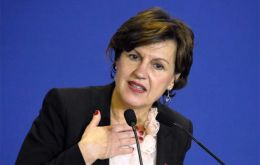
French Agriculture minister, Annie Genevard has declared to her country’s media that Paris is trying to convince “maximum number of countries”, such as Belgium, Bulgaria, Austria, Ireland and “even maybe Italy” to set up a veto system to impede the signing of a trade agreement between the European Union and Mercosur, the South American trade group.